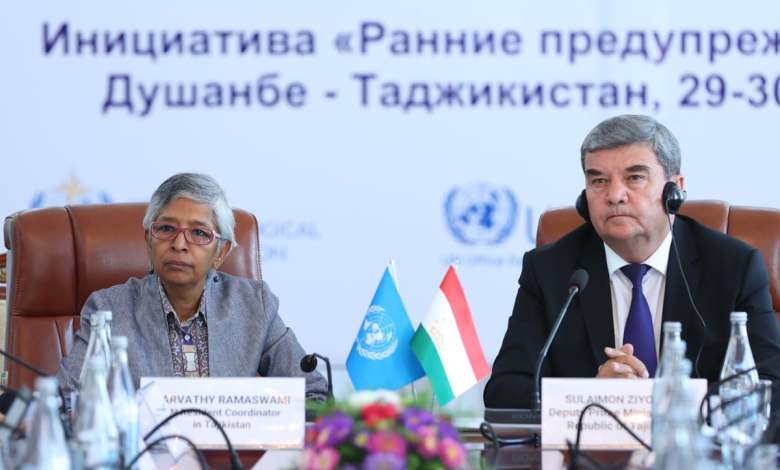Advancing Early Warning Systems in Tajikistan

The recent meeting in Tajikistan of members from pertinent ministries, government organizations, and development partners is a significant step forward for the region’s early warning systems (EWS). In-depth analysis of the event’s important points is provided in this article, which covered debates on EWS implementation’s advancements, difficulties, tactics, and global ramifications.
Current Advancements and Challenges
The panellists gave an overview of the development of Tajikistan’s early warning system. This demonstrates the stakeholders’ dedication to reducing disaster risks and enhancing climate adaptation. It’s important to recognise the difficulties that were noted, though. Despite improvements, EWS coverage is still unavailable to one-third of the world’s population. The difficulties noted highlight the necessity of ongoing innovation and development in disaster risk information, observations and forecasting, readiness and response, and early warning communication.
Prioritized Strategies for Expansion and Effectiveness
Participants from a range of industries prioritised ways to increase the reach, integration, and efficiency of EWS in Tajikistan. This denotes a comprehensive strategy that takes into account not just technology issues but also the seamless conversion of early warnings into effective remedies. The adherence to these policies by pertinent ministries, government organisations, and development partners demonstrates a concerted effort to reduce catastrophe risk.
Technical Discussions and Gap Analysis
The event’s technical sessions were crucial in allowing attendees to learn about the complexities of early warning systems. Insights from earlier studies were incorporated into a mapping exercise, which revealed significant inadequacies in the current systems. This analytical method helps identify areas that demand urgent consideration and resources.
Global Implications and the EW4All Action Plan
The Early Warnings for All (EW4All) Initiative, a global initiative, finds resonance with the meeting in Tajikistan. The EW4All Action Plan, which was introduced at the UN Climate Change Conference (COP27) in 2022, emphasises the need for greater investment in disaster risk information, observations, forecasting, readiness, response, and early warning communication. The project, which seeks to protect every person on Earth by 2027, is aware of the pressing need to close global early warning system gaps.
The incident in Tajikistan represents an important development for early warning systems, especially when it comes to vulnerable groups. Collaboration amongst stakeholders, technical talks, and international support for programmes like EW4All highlight the value of taking proactive steps to reduce catastrophe risk and adapt to the changing environment. The ultimate objective of saving lives and promoting resilience remains at the centre of this effort as the world works together to close gaps and assure complete early warning coverage.



